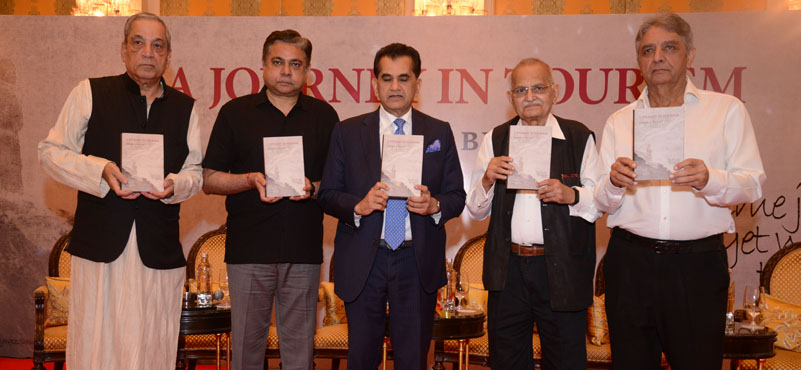Concern looms over the fate of the vacation season as the Indian aviation sector continues to battle serious headwinds. Uncertainty around the revival of Jet Airways, with the airline temporarily stopping its operations and no respite in sight, has caused stress on the available capacity. Add to that, IndiGo’s decision of scaling down its operations with 30 fewer flights each day, initially for a couple of months, now effectively until October, has further spiked concerns.

Senior Vice President, IATO and Chairman, ATE Group of Companies
A steeper airfare was naturally a short-term impact of the capacity constraint, said EM Najeeb. He said that a substantial reduction in capacity had impacted the available number of seats and other carriers had already hiked prices, “affecting huge traffics.” “With the vacation season around the corner, people are expected to travel. A lot of travel is taking place because of holidays in schools and colleges. People extensively travel from north India to Kerala and vice versa. There will be an impact on numbers,” he said.
Treading caution in pacing his wager on the possibility of a quick turn-around in the situation, he advised a “wait and watch” policy. “We will have to wait and see whether there is a revival plan for Jet Airways, or whether other airlines utilize the aircraft available with Jet Airways. It will depend upon the immediate action plan,” he said. He argued that DGCA could have played a more pro-active role in containing the price hike. “Airfares have gone up by 30-40 per cent. Even above 50 per cent in some places. It is bound to have some impact,” he said.
He further alleged that banks involved in the Jet Airways episode were also looking at the matter purely from a financial perspective and had exhibited little interest in re-operationalising the carrier. He noted that a more imaginative approach to handle the situation was going to bode well equally for passengers and lenders.
When asked to ascertain the impact of the development on the outbound traffic, he reasoned that outbound travellers were far less price sensitive. “Outbound travel is anyways expensive in the summer season. There is also limited capacity to Europe and beyond, so pricing is usually on the higher side. I don’t see much impact on the outbound traffic,” he suggested.
Sharing his first thoughts on the dastardly terror attacks in Sri Lanka and its aftermath, he concurred that tourism was going to be the first casualty. “The unfortunate incident will cost international arrivals coming into Sri Lanka,” he said, reacting to the possible fallout of the recent incident. “India is the biggest source market for Sri Lanka and many conferences and meetings take place there. All of it may be affected very badly,” he said. He also suggested that, in the short-term, tourists heading to Sri Lanka were likely to travel to South India, especially Kerala. “It is a possibility as Visa-on-Arrival facility is available in Kerala as well. Therein lies the opportunity for us,” he noted.




































